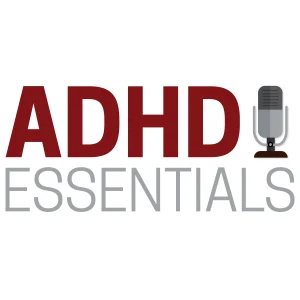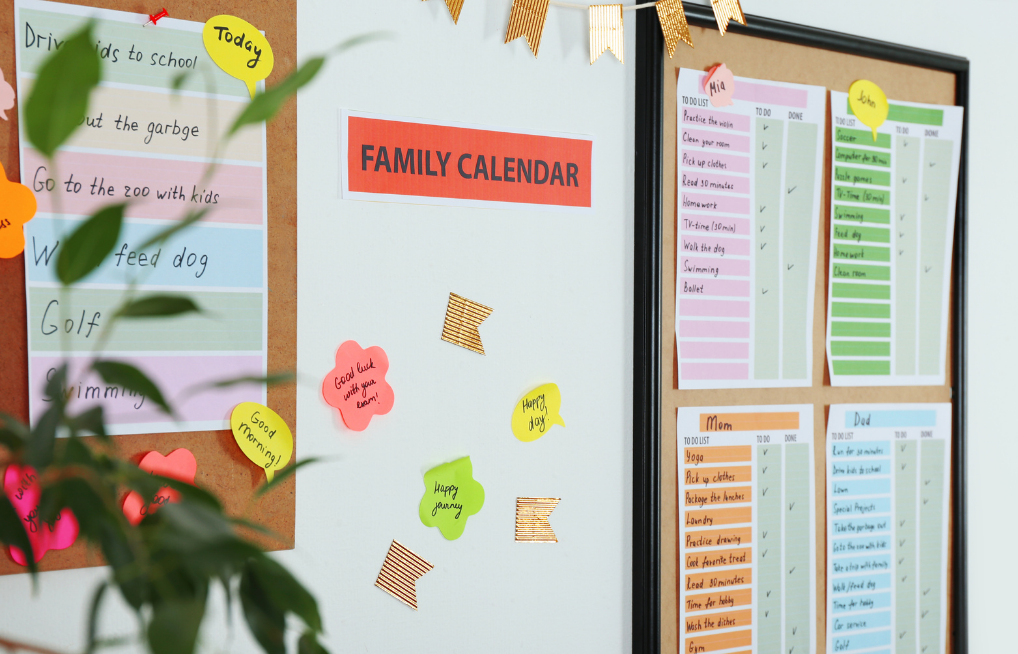Category: General Psychology
22 News Mass Appeal – Four ways to help manage a frustrated child
Intrepid Ed News – Improve your student’s study and work habits: Using my GRIT method
Parenting Neurodivergent Kids with a Growth Mindset: How you can take ‘failure’ out of your vocabulary
 With the start of a new year comes an opportunity to pivot. This year, I’m recommending that you eliminate the word ‘failure’ from any description of your parenting and replace it with ‘efforting.’ Failure is generally defined as a lack of success, and there’s a finality associated with it that doesn’t really apply to the long-haul process of parenting. Parenting is a journey marked by highs and lows, joy and frustration, closeness and disconnection. Parenting a child or teen with ADHD, learning differences, anxiety, depression, addiction or other issues means redefining success from what’s put forth in social media, television or films to what makes sense for your family and your particular situation.
With the start of a new year comes an opportunity to pivot. This year, I’m recommending that you eliminate the word ‘failure’ from any description of your parenting and replace it with ‘efforting.’ Failure is generally defined as a lack of success, and there’s a finality associated with it that doesn’t really apply to the long-haul process of parenting. Parenting is a journey marked by highs and lows, joy and frustration, closeness and disconnection. Parenting a child or teen with ADHD, learning differences, anxiety, depression, addiction or other issues means redefining success from what’s put forth in social media, television or films to what makes sense for your family and your particular situation.
What Does ‘Successful’ Parenting Look Like?
For many neurodiverse families, parenting ‘successfully’ may mean nurturing a child who accepts their neurodivergent brain, identifies personal strengths and talents, has decent-to-positive self-esteem, and learns strategies for managing the tasks of daily living. It may not center on grades, athletics or other conventional accomplishments. This is a tall order that takes time, repetition, practice and patience. It has nothing to do with the failure mentality of fixed mindsets. Efforting reflects a growth mindset: You try something, see what happens, make adjustments, and try again. Efforting reflects the adage “Practice makes perfect,” rather than assuming that anything less than perfection indicates defeat.
The Myth of the Perfect Parent
 Being perfect as a parent is a myth that is unachievable and toxic to self-worth. Perfectionists tend to over-focus on the end result and not the process of getting there. They discount the learning that’s happening and fixate on the accomplishment. But without meeting the end goal, there’s a perception of failure. Instead of worrying about why you can’t make things the way you think they should be, focus on the steadiness of your efforting. This helps you accept your humanity, because the reality is that you will stumble as a parent. It’s how you recover from these fumbles that is worth your time and focus.
Being perfect as a parent is a myth that is unachievable and toxic to self-worth. Perfectionists tend to over-focus on the end result and not the process of getting there. They discount the learning that’s happening and fixate on the accomplishment. But without meeting the end goal, there’s a perception of failure. Instead of worrying about why you can’t make things the way you think they should be, focus on the steadiness of your efforting. This helps you accept your humanity, because the reality is that you will stumble as a parent. It’s how you recover from these fumbles that is worth your time and focus.
Coping with Parenting Guilt and Shame
Sadly, guilt and shame are often the first responses of parents of neurodivergent kids.  Guilt refers to something that you did. It can lead people to amend their errors, be accountable and make a change. You may feel guilty and say to yourself, “I wish I hadn’t done that” or, “That was a poor choice. Ugh.” You can be accountable for your mistakes, apologize, make amends if appropriate, and move on. Shame, on the other hand, refers to who you are. It pushes people to hide or deny their mistakes and engage in self-loathing. Shame leads people to say negative statements such as, “I’m a bad mother, because I did that” or, “I’m not good enough.” Shame spirals are toxic reactions based on feelings of deficiency that ultimately don’t serve you or your kids. Address these insecurities by practicing self-compassion. Accept that you, like everybody else, will mess up periodically! Stop blaming yourself for things that you can’t control, honor what is, and focus on what you can actually influence.
Guilt refers to something that you did. It can lead people to amend their errors, be accountable and make a change. You may feel guilty and say to yourself, “I wish I hadn’t done that” or, “That was a poor choice. Ugh.” You can be accountable for your mistakes, apologize, make amends if appropriate, and move on. Shame, on the other hand, refers to who you are. It pushes people to hide or deny their mistakes and engage in self-loathing. Shame leads people to say negative statements such as, “I’m a bad mother, because I did that” or, “I’m not good enough.” Shame spirals are toxic reactions based on feelings of deficiency that ultimately don’t serve you or your kids. Address these insecurities by practicing self-compassion. Accept that you, like everybody else, will mess up periodically! Stop blaming yourself for things that you can’t control, honor what is, and focus on what you can actually influence.
Letting Kids Learn
Of course, as parents, we don’t want to see our kids struggle. Their pain is so often our pain. It’s lousy to witness your child or teen wrestle with academic, social or emotional issues. You may do your best to ensure that their learning, emotional and physical needs are being met. Yet, they will still experience disappointment, frustration, sadness and jealousy along the winding path of childhood and adolescence to adulthood. That’s normal! Our job as parents is to be present, so we can meet our kids where they are–without always fixing things. This, however, is tough for many of us.  Make a different choice as part of your efforting: Offer your support, your availability for a conversation, or your willingness to do something of their choice. Loving them, letting them figure certain things out, and asking for your opinion is more effective for building self-esteem and self-confidence than telling them what to do.
Make a different choice as part of your efforting: Offer your support, your availability for a conversation, or your willingness to do something of their choice. Loving them, letting them figure certain things out, and asking for your opinion is more effective for building self-esteem and self-confidence than telling them what to do.
Avoid Parenting Comparisons
President Teddy Roosevelt famously said: “Comparison is the thief of joy.” In redefining success for yourself as a parent of a neurodivergent child or teen, you’ll surely benefit from avoiding comparisons on social media based on seeing what other people’s crafted lives look like. When you cut back on the habit of ‘compare and despair,’ you’ll reduce judgment, feel better about yourself, and replace self-criticism with positive self-talk.
10 Positive Self-Talk Phrases to Combat Failure Mindsets
Here’s a list of ten phrases for you to use as you take ‘failure’ out of your mindset and your vocabulary: 1. I’m doing the best I can with the resources I have available to me right now.  2. I am open to being positive and ready for whatever happens. 3. I have the tools I need, and, if I don’t, I have the ability to find them. 4. It is okay if I make mistakes. Parenting my kids didn’t come with an instruction manual. 5. I will not compare my insides to someone else’s outsides: their struggles may be hidden. 6. I can make a different choice at any moment. 7. I can be my best self in the world and stumble sometimes. 8. Two steps forward and one step back is still forward motion. 9. I don’t have all of the answers, and I am not supposed to. I am learning every day. 10. Oops, there I go again. Let’s pause, regroup and pivot!
2. I am open to being positive and ready for whatever happens. 3. I have the tools I need, and, if I don’t, I have the ability to find them. 4. It is okay if I make mistakes. Parenting my kids didn’t come with an instruction manual. 5. I will not compare my insides to someone else’s outsides: their struggles may be hidden. 6. I can make a different choice at any moment. 7. I can be my best self in the world and stumble sometimes. 8. Two steps forward and one step back is still forward motion. 9. I don’t have all of the answers, and I am not supposed to. I am learning every day. 10. Oops, there I go again. Let’s pause, regroup and pivot!
Read more blog posts:
- New Year, New Habits, Same ADHD: How to plan for and maintain new habits together, as a family
- Parenting Older Teens with ADHD: Land the helicopter and focus on scaffolding
- Perfectionism and ADHD: Why ‘good enough’ is better than perfect
Watch on Dr. Saline’s YouTube Channel:
- ADHD and Metacognition – Executive Functioning Support
- How to Deal with & Educate ADHD Doubters
- Sibling Relationships Complicated by ADHD
Seminars, Handouts, Videos & More in Dr. Saline’s Store: https://drsharonsaline.com/product/shame/ https://drsharonsaline.com/product/home-seminar/
ADHD Essentials Podcast: Managing Lingering Pandemic Anxiety with Dr. Sharon Saline
Dr. Sharon Saline joins Brendan Mahan, M.Ed., M.S. on the ADHD Essentials Podcast!
 “In this episode, Dr. Saline and [Brendan] talk about the effects of the pandemic on children and families. We discuss the data on mental health pre- and post-pandemic, moral injury, the effect it is having on social skills, and ways to manage the anxiety we’re all experiencing.” Listen to the episode below, or click here to listen at adhdessentials.podbean.com.
“In this episode, Dr. Saline and [Brendan] talk about the effects of the pandemic on children and families. We discuss the data on mental health pre- and post-pandemic, moral injury, the effect it is having on social skills, and ways to manage the anxiety we’re all experiencing.” Listen to the episode below, or click here to listen at adhdessentials.podbean.com.
YourTango – 5 Ways People With ADHD Can Forgive Themselves & Release Their Shame
22 News Mass Appeal – Your tween’s first crush: What can a parent do?

Originally broadcasted here at wwlp.com.https://www.wwlp.com/massappeal/your-tweens-first-crush-what-can-a-parent-do/
Recognizing Inattentive ADHD: The 5 Most Overlooked Signs and Helpful Tips for Living with Them
 Inattentive ADHD is one of three types of ADHD (hyperactive-impulsive and combination are the other two types). It is often characterized by difficulties in keeping focused, staying organized and following directions or conversations. These experiences may lead to a sustained pattern of losing things, careless mistakes, and mental fatigue. Unfortunately, these issues are often misunderstood as defiance, lack of comprehension, lower intelligence or laziness. But instead, inattentive ADHD interferes with daily functioning and contributes to increased levels of frustration and lower self-esteem. Therefore, it’s important to be able to recognize signs of inattentive ADHD in a person of any age–kids and teens, for integrated support at an early age, but also adults who remain undiagnosed or misdiagnosed. So let’s dive into understanding the inattentive ADHD diagnosis and experience, with a focus on five easy-to-miss signs and recommended tips to help you live easier with them.
Inattentive ADHD is one of three types of ADHD (hyperactive-impulsive and combination are the other two types). It is often characterized by difficulties in keeping focused, staying organized and following directions or conversations. These experiences may lead to a sustained pattern of losing things, careless mistakes, and mental fatigue. Unfortunately, these issues are often misunderstood as defiance, lack of comprehension, lower intelligence or laziness. But instead, inattentive ADHD interferes with daily functioning and contributes to increased levels of frustration and lower self-esteem. Therefore, it’s important to be able to recognize signs of inattentive ADHD in a person of any age–kids and teens, for integrated support at an early age, but also adults who remain undiagnosed or misdiagnosed. So let’s dive into understanding the inattentive ADHD diagnosis and experience, with a focus on five easy-to-miss signs and recommended tips to help you live easier with them.
Inattentive ADHD: Understanding the diagnosis
According to the DSM-5, a diagnosis of inattentive ADHD requires 6 or more symptoms of inattention in children up to age 16, and 5 or more symptoms for ages 17 or older. Symptoms such as difficulty listening, staying focused, or remembering things among others must present for 6 months or longer and differ from expected behaviors for peers of the same age. Common symptoms also include dreaminess, forgetfulness and difficulty paying attention to details. These issues must be chronic or long-lasting and not due to a situational influence or “one-off” experiences. Stress, sleep issues, anxiety and depression or other physical illness can all negatively affect attention and need to be ruled out with a professional evaluation before receiving an inattentive ADHD diagnosis.
Inattentive ADHD vs. non-ADHD inattention
 Many people experience varying amounts of inattention in the course of their lives, but for folks with ADHD, inattention is more severe, lasts longer and negatively impacts their ability to perform well at work or school. It also interferes with how well they function socially, due to missing facial cues or parts of conversations. Because symptoms may change over time, and because there’s a wide range between mild/occasional inattention and a diagnosable issue, some signs of inattentive ADHD are easy to miss. The following are the 5 most overlooked signs of inattentive ADHD, as well as some strategies for managing them.
Many people experience varying amounts of inattention in the course of their lives, but for folks with ADHD, inattention is more severe, lasts longer and negatively impacts their ability to perform well at work or school. It also interferes with how well they function socially, due to missing facial cues or parts of conversations. Because symptoms may change over time, and because there’s a wide range between mild/occasional inattention and a diagnosable issue, some signs of inattentive ADHD are easy to miss. The following are the 5 most overlooked signs of inattentive ADHD, as well as some strategies for managing them.
1. Difficulty completing tasks
Finishing projects, chores or homework often reflects a lack of focus or interest but has nothing at all to do with intelligence, laziness or disobedience. Instead, sticking with a task until it’s completed reflects a true difficulty with attending to the work at hand, quickly reaching brain fatigue. and struggling with goal-oriented persistence. Low motivation for uninteresting tasks creates further obstacles and adds another layer of complication for getting things done.
TIPS:
These strategies help both children and adults who struggle with sustained focus and perseverance:
- Try chunking tasks by breaking them down into small pieces. If it’s still difficult to begin or pursue, then the task needs to be even smaller.
- Establish specific timed work periods with built-in timed breaks based on how long your child (or you) can concentrate before becoming distracted.
- Identify a preferred order of doing tasks. Is it starting with something easy to get going, then doing the hard thing and finishing with medium one? What tasks or subjects are easy, medium or hard?
2. Forgetfulness
Working memory challenges often result in missed appointments or meetings, turning in work or forgetting to do a chore or run an errands. They also make follow-through more difficult resulting in issues with showing up for school, personal or professional responsibilities. Ashamed and embarrassed, people who wrestle with forgetfulness may be labeled as ‘stupid,’ ‘uncaring’ or ‘irresponsible’ when they struggle with biologically-based problems with recall.
TIPS:
 Instead of judging your memory challenges, accept them and engage supports:
Instead of judging your memory challenges, accept them and engage supports:
- Use technology tools like alarms, notifications, texting, as well as post-its and to-do lists as reminders.
- Consider putting a laminated note in a backpack to remind your child or teen of what needs to be there.
- Use cues such as family calendars or daily responsibility lists/charts to guide kids and trigger their memory for what to do next. This also helps with improving organization and planning.
3. Spaciness/distractedness
With an inattentive ADHD brain, you are easily pulled to think about something other than the task at hand. This is a common occurrence. Perhaps you get distracted by a “new shiny object,” the snow drifting outside of your window, or squeaking noise of the heater in your office. Your child may drift off into thoughts about lunch or playing a video game during their math exam. This tendency for distractedness makes it tougher to stay on point and complete the activities of daily living, homework or job responsibilities. Plus, many people with inattentive ADHD may process information more slowly than they actually comprehend it, making them feel perpetually behind and overwhelmed. It takes longer to sort through and digest information.
TIPS:
Slow things down and allow extra time for completing tasks:
- Improve accountability by using lists and reminders. Set alerts or banners to flash across your phone, iPad or computer to help you stay on task (or find an app to do this for you).
- Practice mindfulness with family (or individual) meditation or yoga to increase awareness about where attention is and where it is not.
- Create a coping strategy for the return from a mental drift to avoid panic and shame.
4. Trouble listening and/or following directions
 Following instructions or tracking conversations can be tough for many kids and adults with inattentive ADHD. Whether there’s an auditory processing issue, a working memory challenge or information overload, when someone is talking (visual, sensory and sound), it may seem like someone isn’t listening, doesn’t respond appropriately or can’t stay present. They may drift off and then ask “what?” or say ”yes” when no one asked a question. Paying attention in a class or meeting and being expected to take notes simultaneously may seem impossible with words and sentences omitted and replaced by doodles. These are not willful, oppositional behaviors, but rather signs that someone cannot effectively process or retain information.
Following instructions or tracking conversations can be tough for many kids and adults with inattentive ADHD. Whether there’s an auditory processing issue, a working memory challenge or information overload, when someone is talking (visual, sensory and sound), it may seem like someone isn’t listening, doesn’t respond appropriately or can’t stay present. They may drift off and then ask “what?” or say ”yes” when no one asked a question. Paying attention in a class or meeting and being expected to take notes simultaneously may seem impossible with words and sentences omitted and replaced by doodles. These are not willful, oppositional behaviors, but rather signs that someone cannot effectively process or retain information.
TIPS:
- Use “The Rule of 3” when giving instructions to make sure you’ve been heard and understood. Repetition helps information move down the memory line and become imbedded.
- Set up mandated academic and ADA work supports, such as a note-taker, pre-recorded lectures or written copies of presentations and lessons. This makes listening about hearing what is said instead of adding another task such as writing to it.
- In a social situation, ask a buddy who understands ADHD and the tendency to drift to help with focus and fill in the gaps about something you missed.
5. Disorganization
If you lose your keys or misplace a report or homework assignment, you are not alone. Difficulty keeping track of stuff is a frequent indicator of inattentive ADHD. When someone struggles with disorganization, they often feel overwhelmed, embarrassed and confused. Figuring out where to begin the process of categorizing, cleaning and tidying up can seem insurmountable, akin to climbing Mt. Everest.
TIPS:
 Follow my father’s golden rule: Everything has a place. This used to drive me crazy as a kid but now I see the wisdom of his ways. Make a place for things and create organizational systems that you or your child can actually follow. Keep these simple, straightforward and logical to the ADHD brain. It may not make sense to anyone else, and that’s fine!
Follow my father’s golden rule: Everything has a place. This used to drive me crazy as a kid but now I see the wisdom of his ways. Make a place for things and create organizational systems that you or your child can actually follow. Keep these simple, straightforward and logical to the ADHD brain. It may not make sense to anyone else, and that’s fine!- Create regular routines with specific steps for cleaning a bedroom or tidying up the living room, write them down and post them on the refrigerator. Don’t rely on recall/memory to kick in and direct the show.
- Use incentives to provide motivation if necessary. Consider setting aside a particular time of day or day of the week just for organization, such as an evening clean sweep after dinner or a Saturday morning bedroom clean-up.
Read more blog posts:
- ADHD Misconceptions: How to respond to 4 damaging false beliefs and assumptions about ADHD
- The Truth about ADHD in Girls, and 5 Ways You Can Help
- Celebrate ADHD Awareness Month by Accepting the Wonderful Uniqueness of Living with ADHD
Watch on Dr. Saline’s YouTube Channel:
- How Do I Support My Daughter with ADHD? | ADHD Q&A with Dr. Saline
- Help Your Kid Overcome School Anxiety | Operation Parent Webinar with Dr. Saline
- How to Deal with & Educate ADHD Doubters | ADHD Q&A with Dr. Saline
MSN – 10 Ways Neurodiverse Folks Can Have Deep, Thoughtful & Easy Conversations With Anyone
Read the article on MSN! Read the article featured on YourTango. Read the original blog post here. 
YourTango – 10 Ways Neurodiverse Folks Can Have Deep, Thoughtful & Easy Conversations With Anyone
Read the article featured on YourTango! Read the original blog post here. 

